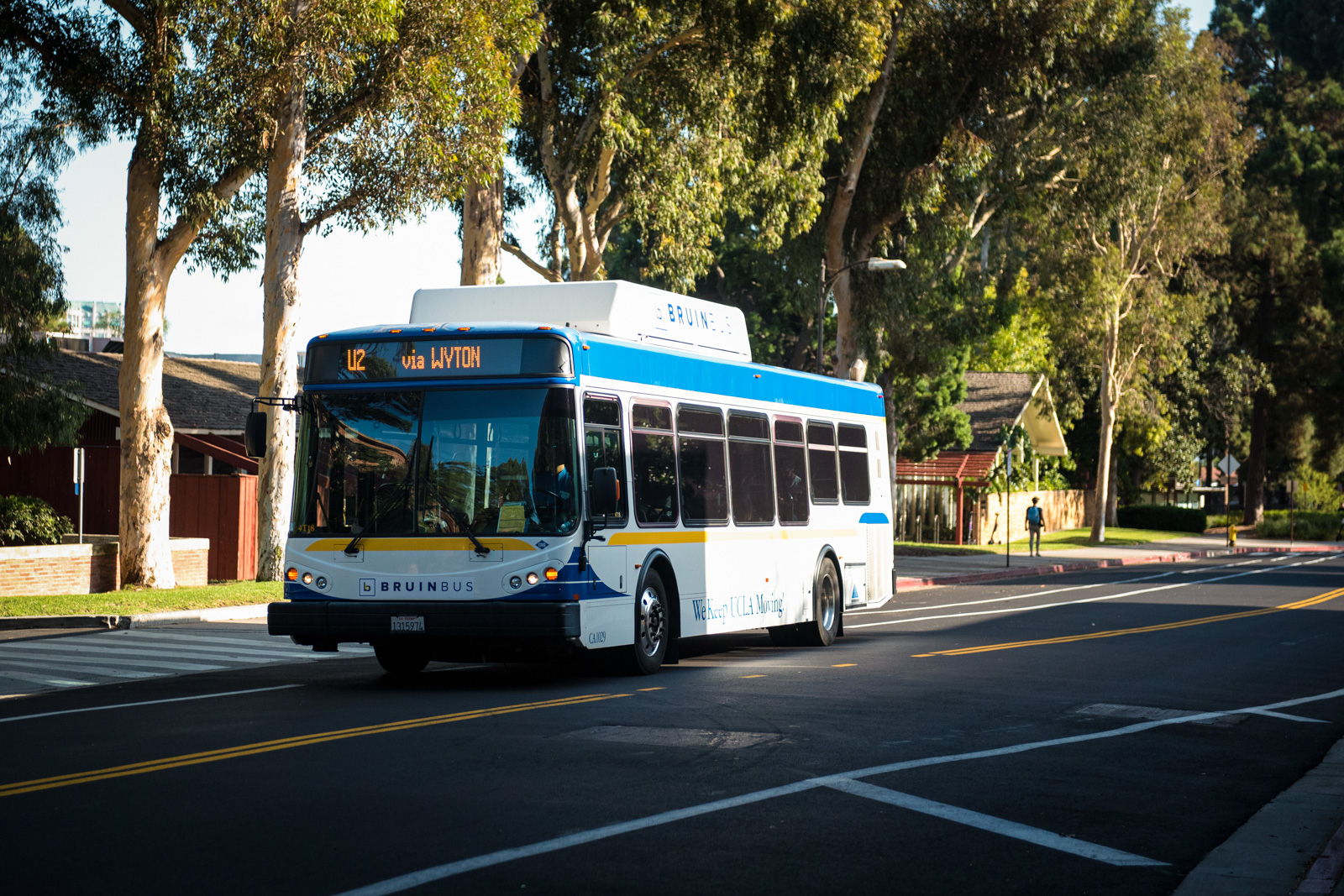Op-ed: Electric school buses would improve state’s emissions, economy, public health

(Daily Bruin file photo)
By Kendall Kaufmann
Sept. 18, 2019 1:18 a.m.
Global warming is an issue with many dire consequences, some of which we’ve seen firsthand, with California’s record-breaking wildfires hitting close to home this year.
And the effects of climate change are only going to worsen – unless we cut our carbon emissions.
The recent landmark bill Senate Bill 100 committed the state of California to 100% renewable energy by 2045, and California Public Interest Research Group students on campus played a pivotal role in building student support to move the bill through the California legislature. SB 100 will have a hugely positive impact on our state’s carbon footprint, and it will also provide a necessary framework for future bills looking to move our state toward a cleaner, healthier and more meaningful future.
Existing law currently requires that state agencies get electrical corporations to fund programs that would expedite the electrification of California’s transportation. This is to “meet air quality standards, achieve specified zero-emission and near-zero-emission vehicle-related goals, and reduce emissions of greenhouse gases to 40% below 1990 levels by 2030 and to 80% below 1990 levels by 2050.”
One of the best ways we can continue to act on climate change is by electrifying vehicles in California – specifically school buses.
And there is a bill that would do just that. The next step for California is state Assembly Bill 1418, which would electrify school buses. AB 1418 would require that by March 15, 2020 and each proceeding year, local publicly owned electric utilities would have to report to the California Energy Commission on their plans to achieve this conversion to zero-emission school buses.
The arguments for this change are clear – switching from diesel to electric school buses would help our environment, contribute to better public health and would save money long term.
With 41% of our state’s carbon emissions coming from transportation, electric school buses would greatly reduce pollution and cut down on carbon dioxide emissions, which are a significant contributor to global warming. The runoff of pollutants created by diesel vehicles also affects the water quality of our lakes, rivers and oceans – impacting not just our public health but also the wildlife in those bodies of water.
Electric school buses are also a necessity for the health of our children. Students are exposed to diesel-infested air, and there is research supporting its carcinogenic effects, as well as its correlation with airway inflammation and allergies. It is unacceptable to put our children in danger when there is technology available to prevent it – not to mention legislation in support of these efforts.
Granted, the switch to electric will be a costly investment. But despite high initial costs, funding electric school buses would ultimately be worthwhile, both economically and environmentally.
Five years ago, the Kings Canyon Unified School District became the first to convert to all-electric buses, followed closely by the Gilroy Unified School District. Their decisions stemmed not only from helping the environment, but also from helping children’s health as well as saving on the school district’s costs.
Adomani, a company that helped with Gilroy’s conversion, stated that there was $200 million available to schools wishing to convert to electric buses. For Kings Canyon Unified School District, the initial cost of an all-electric bus was twice the cost of a diesel bus. However, for both schools, the investment ultimately paid off in six years and the lifetime investment cost was much lower than other alternatives.
Considering there are 480,000 school buses on the road, the potential for statewide savings is huge. Daimler, the Mercedes-Benz parent company, has even developed an electric school bus model, the “Jouley,” with a 100-mile range that is ready to roll out this year. Since Daimler controls over one-third of the market share with its Thomas Built Buses, the likelihood that all-electric school buses are adapted through the free market is relatively high.
But legislation is the best way to ensure that happens.
We need our government to step in to accelerate this process through incentives and funding. The free market motives are real – they just need a little government push to get the ball rolling.
California is a climate leader, and it should be taking charge in the fight against climate change to protect our future. We deserve to breathe clean air and live in a healthy environment – and electric school buses are a huge step in the right direction. And if not for the environment, they should be implemented for the economy – they will save schools so much money that there is no excuse for California to not act as soon as possible.
As college students, we are part of the largest generation alive. We are the first to see the impacts of climate change and the last ones that can act in time to stop it.
It’s imperative that we use our voices to uplift the groups and individuals working on this issue here at UCLA and across the state – and step up ourselves to take action.
Kaufmann is a fourth-year civil engineering student and was the 2018-2019 CALPIRG Grasstops coordinator.

